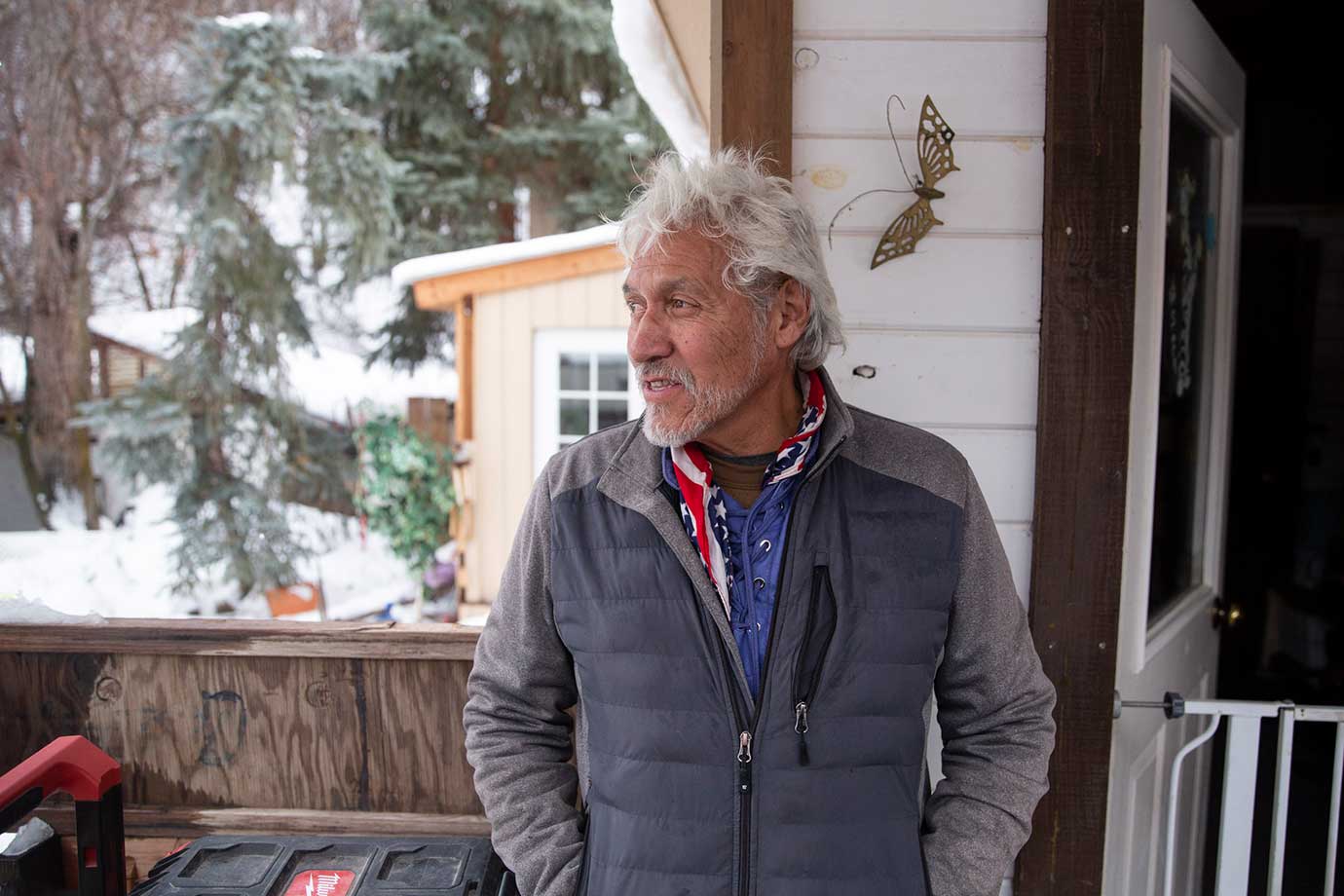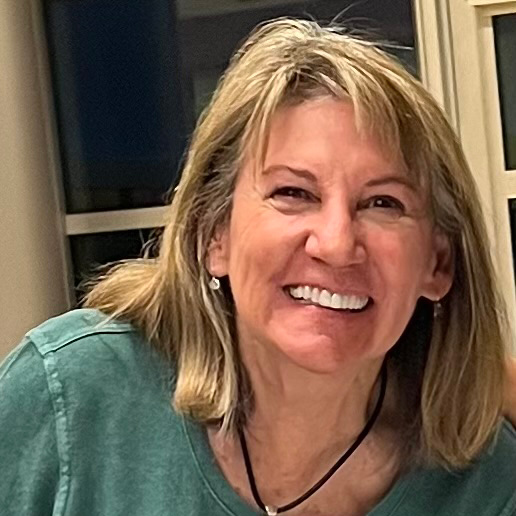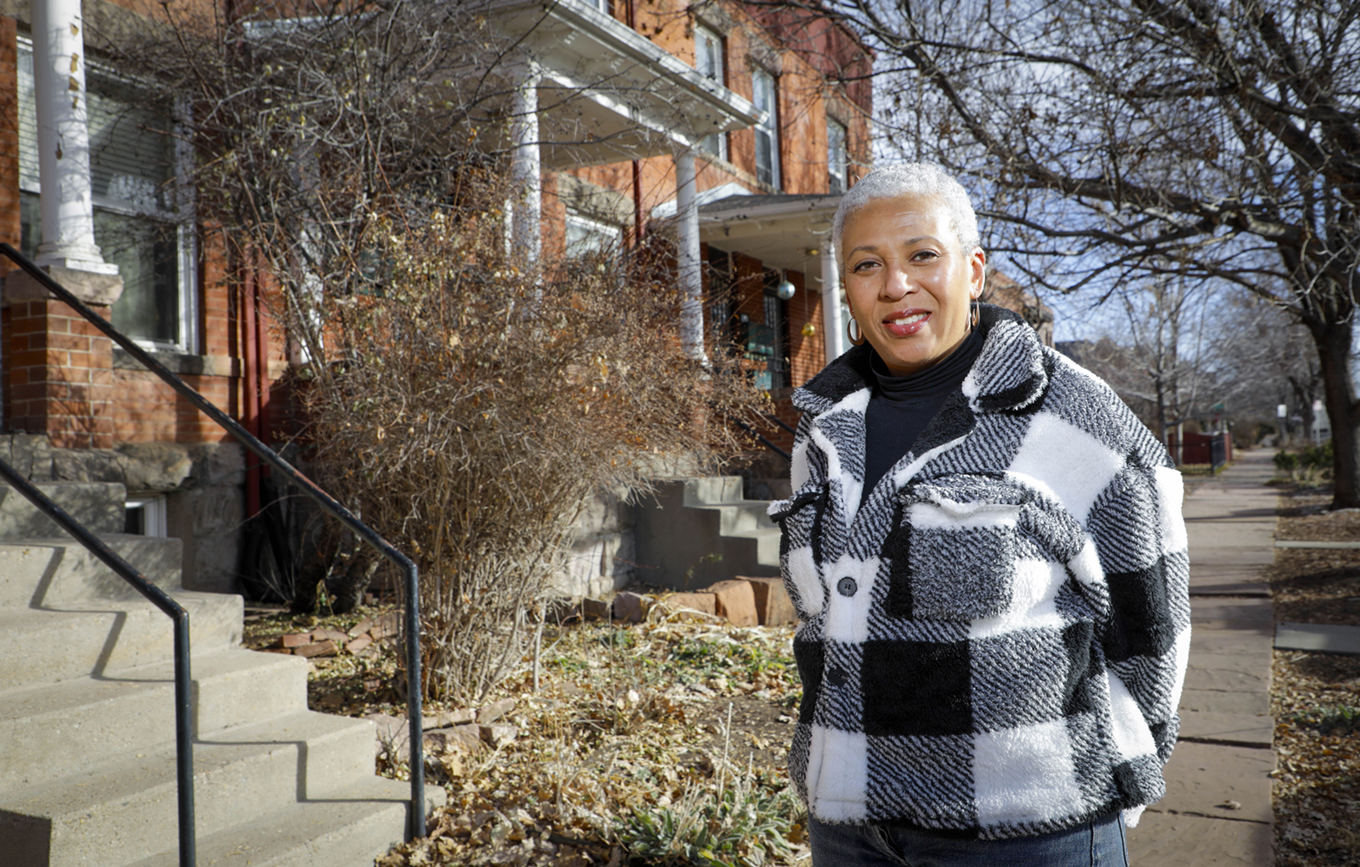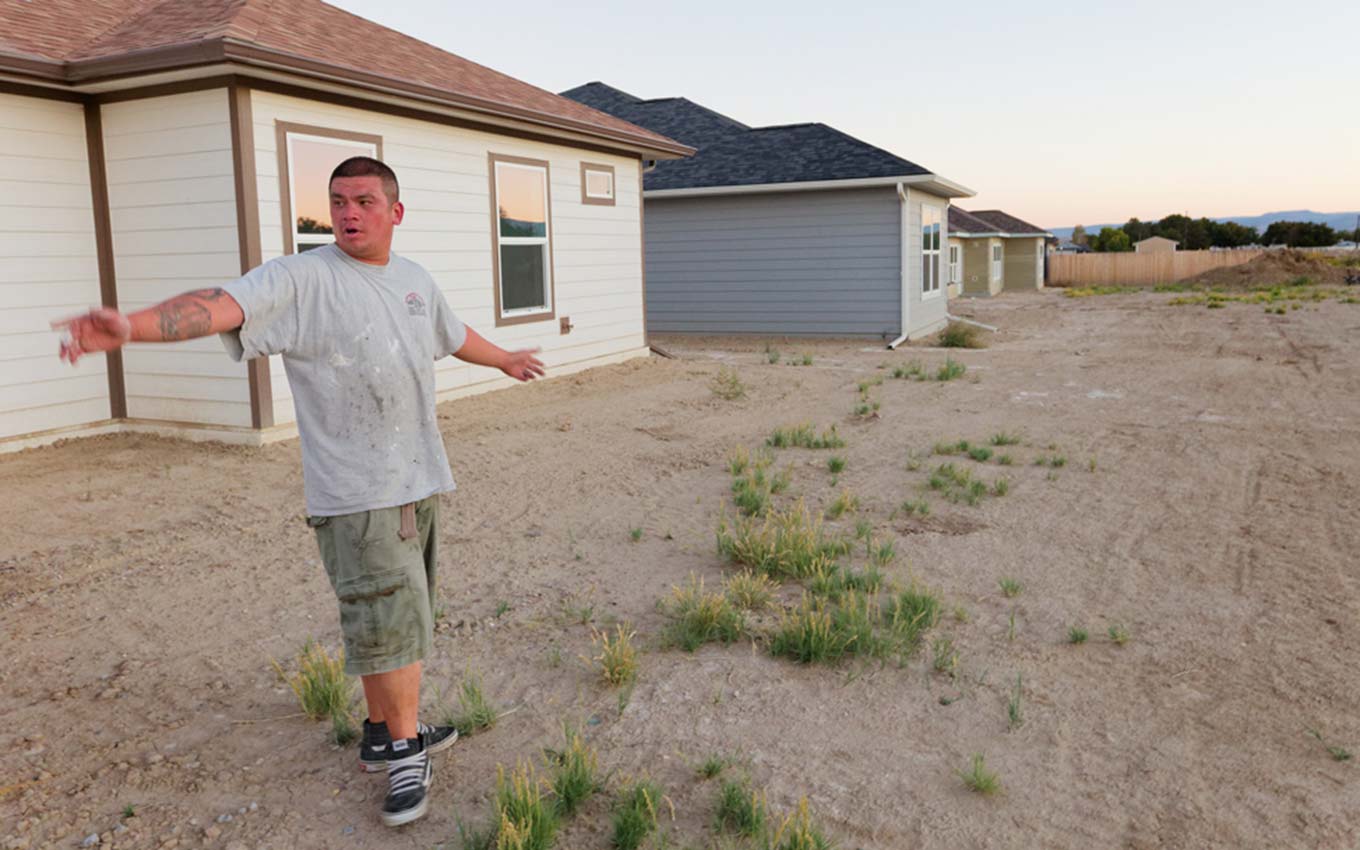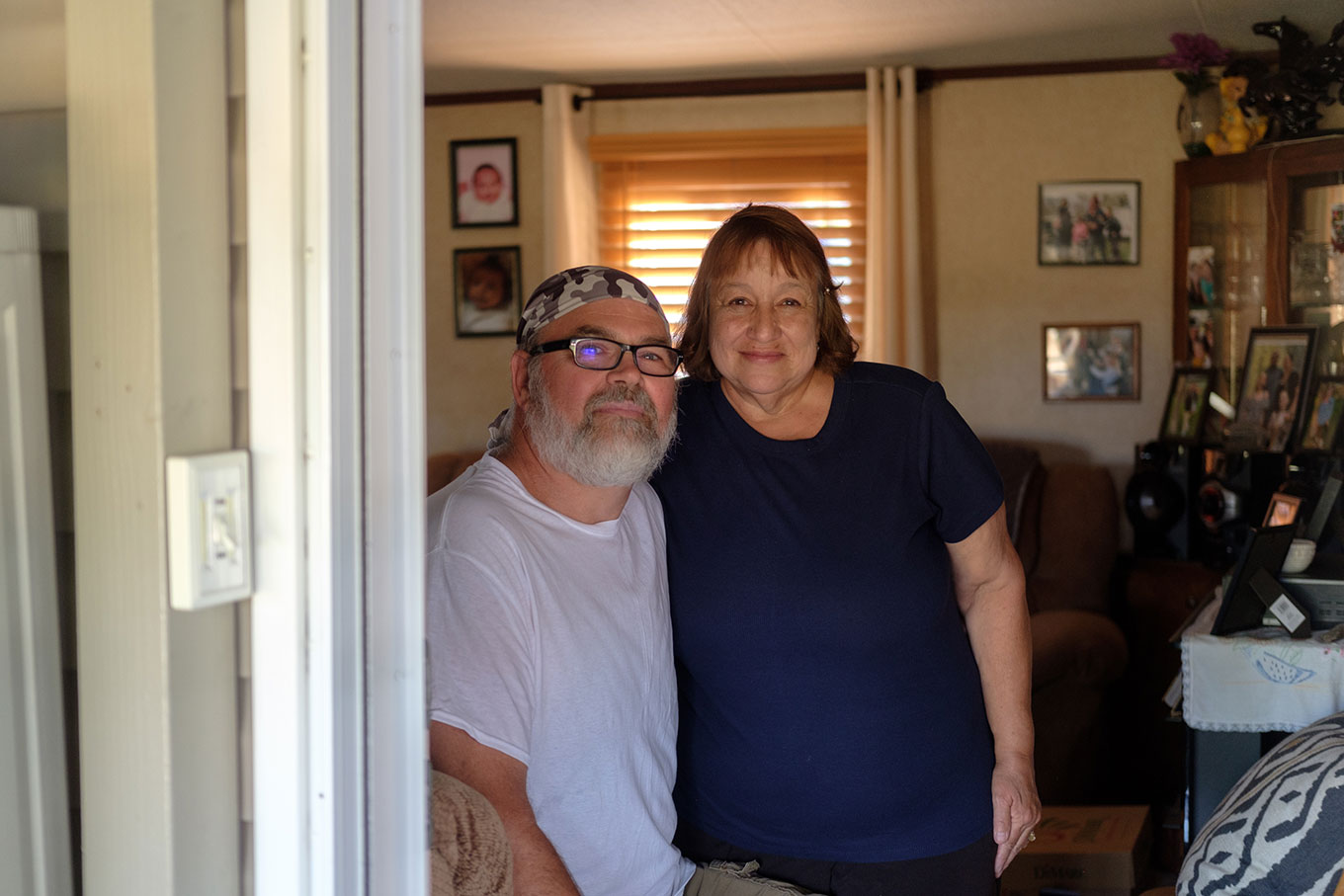Snow removal contracts. Broken sewer pipes. Insurance payments.
Owning a mobile home park is no easy business. The two dozen people packed into a small meeting room in Glenwood Springs, Colo. at least once per month are finding out just how difficult it will be as they train to become owners of the 3-Mile Mobile Home Park south of town.
Some of these owners-to-be have rented spaces in 3-Mile for nearly four decades. Their mobile homes are situated on 20 cottonwood-shaded lots snugged up against steep hillsides at the end of a precipitous one-lane drive. Over the years, the 90 or so residents have added extra rooms and covered porches. They have built sheds and fences.
Life at 3-Mile was predictable and consistent until the longtime park owner died in late 2021. Then, fear rippled up and down the park’s two dirt roads.
According to longtime residents, the late owner, Ben Krueger, a well-known Vail philanthropist, had been a benevolent landlord. Krueger responded to needs and kept the rent for spaces lower than most mobile home parks in the Roaring Fork Valley. Over the years, he was known to help tenants who had run into hard times and couldn’t pay their rent.
But Krueger’s children didn’t want the headache of running a mobile home park, so they planned to sell. A large corporation had bought another local park, and 3-Mile residents heard it had approached the Krueger family about purchasing 3-Mile.
The 3-Mile residents suddenly faced the same life-flipping change that has slammed so many in mobile home parks in recent years: outside corporations swoop in, buy the park, often fail to maintain it properly, and jack up rents to levels that squeeze out lower-income residents.
To avoid the same fate, 3-Mile residents decided they needed to purchase the park themselves.
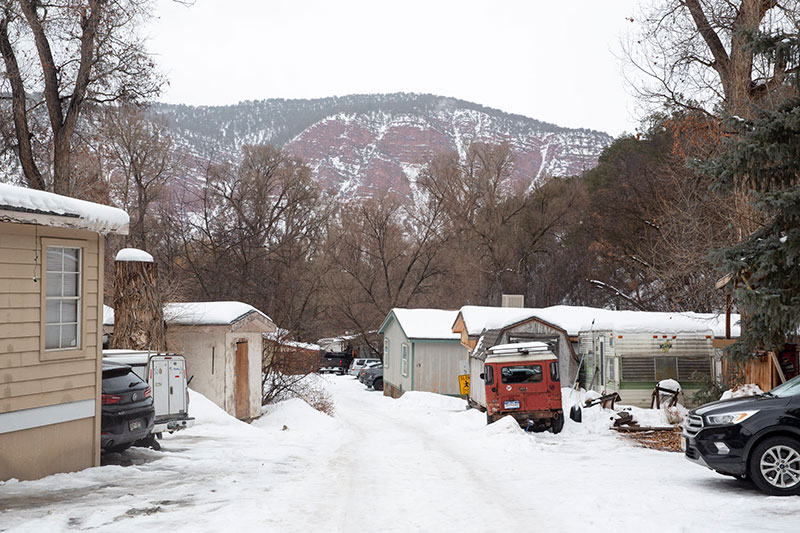
Nearly 100 people live in 3-Mile Mobile Home Park, which was owned for many years by Ben Krueger until his death in 2021. Photo by Luna Anna Archey / Special to The Colorado Trust
At first blush, the 3-Mile residents did not seem like a population that could even contemplate buying an 11-acre, $2.4 million property. Park residents include construction workers, teachers, retirees, hotel cleaners, restaurant cooks and store clerks. Around 80% are Hispanic, and the majority of the community doesn’t speak fluent English.
Many residents didn’t seriously contemplate buying the property until Felix Jimenez, a tenant who has lived at 3-Mile since the late 1980s and raised five children while living there, sought outside help.
“The opportunity to help ourselves was there,” said Jimenez, a landscaper and property manager who has several adult children and their families living in units near his. Jimenez believed the tight-knit residents of 3-Mile could—and should—try to purchase the park. Krueger, the late owner, had told Jimenez towards the end of his life that he wished the park could stay in local hands.
Jimenez had served as a sort of de facto handyman for Krueger. He knew all the park’s pluses and minuses—the rickety pipes and potholes, and the tucked-away charms of towering cottonwoods and a gurgling creek. He figured the residents had the skills and the will to maintain the park if it were theirs.
“I knew it was going to be bumpy, but I knew then it could work,” Jimenez said.
Jimenez first sought help from Thistle, a Boulder-based nonprofit (and past Colorado Trust grantee) dedicated to developing, preserving and managing affordable homes. Thistle has helped other mobile home parks make the switch to resident-owned models. But Thistle couldn’t help in this case, as 3-Mile was too small to meet its criteria.
By luck, Jimenez’s ownership efforts came to the attention of Sydney Schalit, the executive director of Manaus, a longtime social justice nonprofit (and another past Colorado Trust grantee) in the Roaring Fork Valley. Manaus helps to grow ideas that are focused on making communities more livable.
“The timing could not have been better,” Schalit said. She had recently resurrected one of the five nonprofits under the Manaus umbrella: the Roaring Fork Community Development Corporation had been dormant for over a decade when it unsuccessfully attempted to turn another mobile home park, in nearby Basalt, into a resident-owned model. That park had been in a flood plain, making it impossible for the residents to secure a loan.
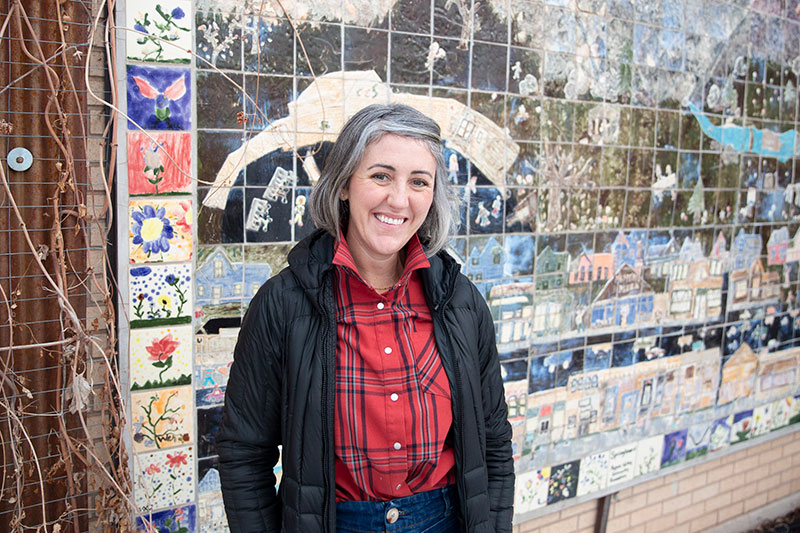
Sydney Schalit, the executive director of Manaus, outside her office in Carbondale, Colo. Photo by Luna Anna Archey / Special to The Colorado Trust
Schalit was searching for another park to try to preserve through that entity, which she also directs. She phoned Thistle to discuss the possibilities and learned of the recent contact with Jimenez. Schalit then contacted Jimenez and one of Krueger’s sons. The resident-ownership idea for 3-Mile moved quickly from a pipe dream into the realm of reality.
Schalit cobbled together a payment of $2.4 million through a mix of a loan, grants and donations. In the spring of 2023, the Roaring Fork Community Development Corporation purchased the park and became the new landlord. Manaus hired Common Good Management Services, an agency that manages resident-owned mobile home parks across the state, to oversee 3-Mile while the residents could be readied for ownership and prepared to meet all the fiscal and regulatory requirements for resident-owned parks.
Plans went into high gear for the nonprofit corporation to sell the park to the residents within three years. Monthly meetings began last summer as the residents headed for a monumental change.
“They are learning to be landlords. It’s a big shift for them,” Schalit said. “We are elucidating all these pieces they hadn’t thought of before.”
The residents first came together in May 2023 for a park cleanup day. The cleanup was the residents’ idea. They stuffed a rollaway dumpster with old tires, appliances and construction materials that had littered trailer spaces. It was an early demonstration of their desire to take care of what will be their park someday. When the work was finished, the residents and Manaus board members who had volunteered to help gathered at the mobile home in space #14 for a taco lunch and a celebration of their newfound cooperative mission.
Many of the homey mobile units have porches that serve as displays for hobbies and religious affiliation. Some have logs carved into shapes of animals; others have Our Lady of Guadalupe statues. Bikes, scooters and tricycles attest that about 30 kids live here. Numerous pickup trucks with business logos are parked in driveways.
“It’s such a cool group of people and this is such a big ask,” Schalit said of the responsibilities these already busy residents are now shouldering.
Within a week of the cleanup, the residents faced several unexpected real-world lessons about what kind of unforeseen difficulties ownership would bring.
A large rock dislodged from a hillside and came bouncing down Three Mile Creek, which cuts through the middle of the park. It tore out an old sewer pipe that ran across the creek.
A resident noticed the damage first and called Common Good manager Brianda Cervantes in the middle of the night. The residents knew they needed to act quickly because they didn’t want to violate water laws from sewage running into the creek.

Brianda Cervantes, manager at Common Good Management Services, which is currently overseeing 3-Mile Mobile Home Park while efforts continue to transfer the park to resident ownership. Photo by Luna Anna Archey / Special to The Colorado Trust
By six the next morning, a porta-potty had been delivered. Residents in the upper park not served by the broken line invited residents below the creek to use their bathrooms until the pipe could be fixed.
Before another week went by, an electrical problem in the City of Glenwood Springs’s system caused damage to the electric pump that delivers water to the trailers. For a second time, the residents came together to help solve the problem by hiring a contractor who could rebuild the electric system throughout the park.
“I was really impressed through all that to see the community coming together,” Cervantes said.
With those crises behind them, the residents formed committees to deal with the issues of tree management, water pressure, a shaky footbridge, and the need for new rules to guide park residents. The park has long run on neighborliness more than hard-and-fast rules. However, new regulations that resemble homeowner association covenants will ensure 3-Mile complies with Colorado’s Mobile Home Park Act.
Three-Mile’s tree committee already agreed that 18 of the park’s trees needed to be cut down to lessen fire risk and eliminate the danger of the trees toppling onto mobile homes. The rules committee has come up with covenants for the renters. Resident Tony O’Rourke reported at the December meeting that his rules committee will soon post new rules on each door.
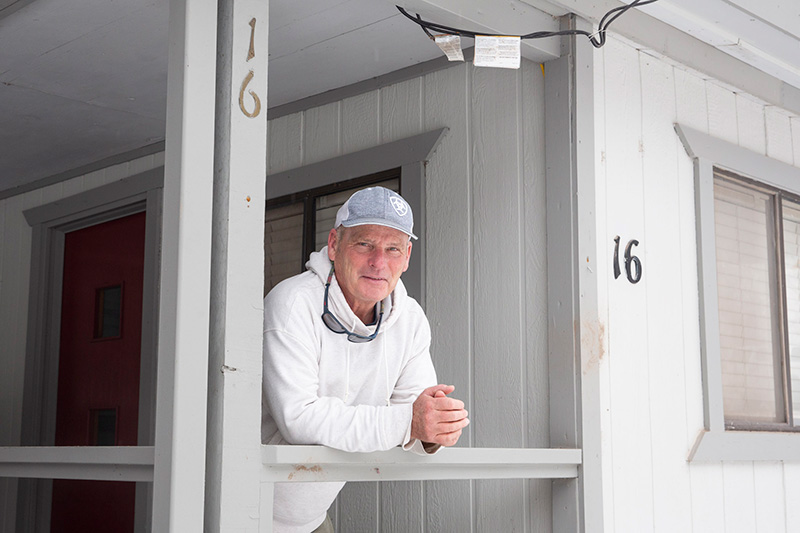
Tony O’Rourke at his home in 3-Mile Mobile Home Park. O’Rourke has lived in the Roaring Fork Valley for most of the past 40 years and has struggled at times to find affordable housing. Photo by Luna Anna Archey / Special to The Colorado Trust
At the same meeting, residents wrestled with how to deal with trash scofflaws placing junk outside the park’s dumpsters. Should they install cameras? Impose fines? Post warning signs?
There were questions about why the residents can’t simply take care of problems in the park as they have long done; for example, Jimenez can plow the roads and rebuild a rickety footbridge over Three Mile Creek. The residents learned that from now on, all work must be performed by a bonded and insured contractor to meet the loan requirements.
They tackled questions about a possible conservation easement on park acreage that climbs a hillside and connects with private lands. An easement could help them buy down part of the loan on 3-Mile.
The most significant task at the meeting was digesting Schalit’s annual budget. The three-page budget listed all the required and recommended expenses such as the cost of audits and license fees, the utility payment projections, real estate taxes, insurance fees, and the necessity of having a reserve savings account.
Some residents shook their heads as they studied the budget and learned that lot rents would have to be increased in 2024 from the current $700-$750 to $825. Without that increase, their park income for the coming year would be $26,000 in the red. The increase might give them about a $4,000 cushion.
Some expressed surprise on learning that the park won’t make the new owners money. All the rent collected will go back into the park, Schalit told them.
There were a few grumbles over some items in the budget. “Next year, it will be your budget,” Schalit told the residents. “Then you guys will have these decisions to make for yourselves.”
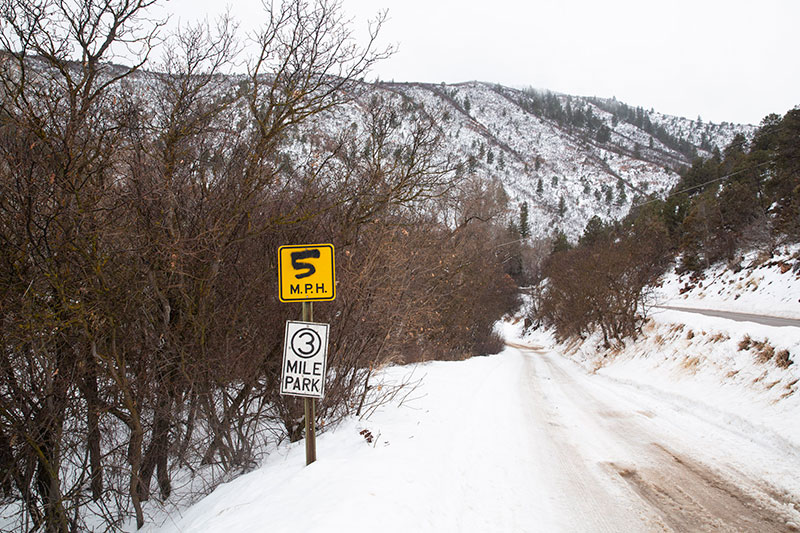
The entrance to 3-Mile Mobile Home Park. Photo by Luna Anna Archey / Special to The Colorado Trust
On a weekend in late January, the residents participated in a six-hour meeting with an expert from the Front Range who delved even deeper into the nuts and bolts of resident-owned parks. The residents studied the options of setting up their park as a co-op or as a multi-owner limited liability corporation and discussed how to form a board to manage 3-Mile.
The new owner-training work will continue with help from a $280,000 grant received in December from the Colorado Health Foundation. The funds will be used to collaborate with bilingual experts and experienced resident-owners from across the state who will help the 3-Mile residents work towards buying their park. The grant is also expected to have wider effects; it is designed to help the community development corporation create a “bridge to ownership” model that can be used as a template for other mobile home communities wanting to move into resident ownership.
The residents know they have a heap of work to do. But they also recognize that what they are doing is “historic,” as Schalit said. They are inspired by knowing this is bigger than a tiny mobile home park; if they can do this right, others can follow their example.
“This isn’t just about us. It is about all the working people in this valley,” said O’Rourke, who has lived and worked in the Roaring Fork Valley for most of the past 40 years and struggled during much of that time to find affordable housing. He said that need has spurred his willingness to participate actively in 3-Mile’s transition.
Jimenez agreed that what 3-Mile residents are doing will reverberate far beyond the boundaries of the small community.
“This is groundbreaking stuff,” he said. “This is like the beginning, I think, of something that will work for other people. If we can make it work, the next will be easier.”
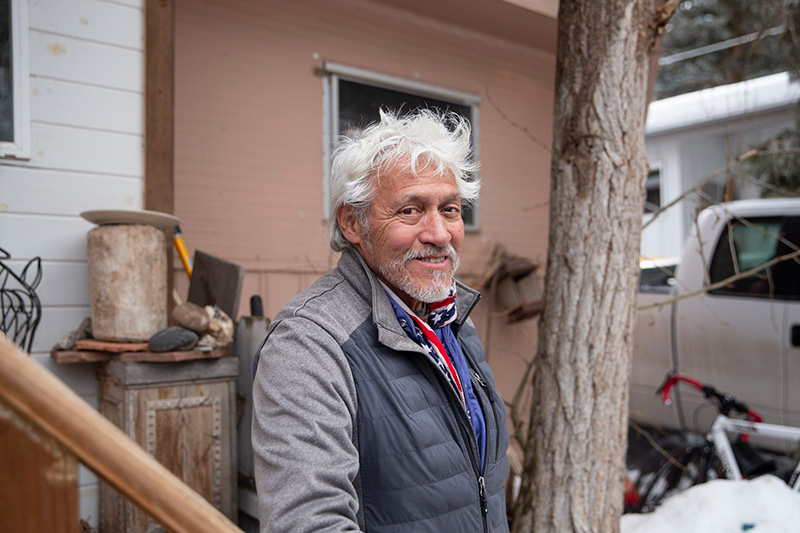
Jimenez has raised five children since moving to 3-Mile almost four decades ago; several of them, now adults, live in units near his. Photo by Luna Anna Archey / Special to The Colorado Trust
